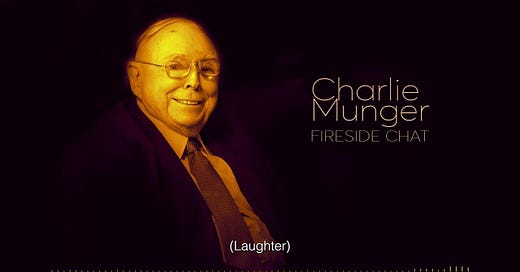The Rational Cloning: Weekly Ideas #78
10th Man on an Asset-Light Homebuilder,Tweets/Ideas That Make You Go… Hmm 🤔
Welcome to the 78th edition of the Rational Cloning Newsletter (Weekly Ideas Series).
Helping you discover the best ideas of others.
Happy cloning.
Weekly Investment Ideas
(1) The 10th Man Deep Dives: Dream Finders Homes (DFH)
Management, Governance, and Culture
Patrick Zalupski (41 years old) is still the President, CEO, and Chairman of the Board. He’s also on the investment committee of DF Capital and on the board of Jet Home Loans. One thing I find particularly appealing about Patrick is that he’s never taken money off the table since founding DFH 15 years ago, which shows a lot of confidence in the business:
“Just like the previous three times the Company raised capital, 100% of the proceeds [from the IPO] were re-invested in the business with no shareholder taking anything off the table”
Today, DFH has 32.5mn Class A shares and 60.2mn Class B shares, of which 100% of Class B shares are owned by Patrick, and 27% of Class A shares are held by Patrick and other executives/directors. In aggregate, the executives/directors of DFH own 75% of the economic interest in the business and control 90% of the votes (Patrick specifically has roughly a 65% economic interest and controls about 85% of the votes since Class B shares entitle him to 3x as many votes as Class A shares). Even in the unlikely event that the prefs convert to Class A shares, Patrick would still control a majority of the votes and retain most of the economic interest.
Asset-Light Playbook
Like NVR, DFH relies heavily on option contracts to secure their lot backlog (more than any other large public builder aside from NVR). At the end of 2022 they controlled 43,558 lots but owned just 5,943 of those lots directly, and 68% of the lots they did own had homes being built on them. As such, DFH deploys very few dollars of NWC per controlled lot and generates amongst the best ROIC in the public peer group (Exhibit C; lower operating margins resulted in lower ROIC than DHI despite less capital deployed, but I’ll touch on that later).
Conclusion
There is no doubt that this is a cyclical industry and all competitors will see activity ebb and flow with that cycle, DFH included. There are also multiple reasons to expect that 2023 and 2024 could be challenging years for the industry (which I explain in Part 1). Nevertheless, I think expectations for key drivers implied by the current share price are extremely punitive and my base case is nearly 2x higher than the current price.
DFH is managed/controlled by what I consider to be a very strong CEO, has a good capital allocation track record, operates in some of the most compelling markets in the country, utilizes a relatively unique asset-light strategy that improves returns and minimizes risk, and appears to have an opportunity to deliver margin expansion off a more normalized level. They also have what I consider to be a very strong balance sheet, with nearly 30% of their current market cap sitting in cash. Even after stress-testing the model, I’m convinced they could weather a serious storm if there was a recession tomorrow, and likely come out stronger on the other side. In my view, the risk/reward at the current price is quite compelling if you don’t expect a full-blown housing Armageddon in the next 12 months.

Tweets That Make You Go… Hmm 🤔









Check out previous issues of Weekly Ideas👇
The Rational Cloner’s Library
Mosaic Musings #2: Disinflation → Inflation Inflection Point?
Mosaic Musings #3: Royalty Companies: Inflation, I win; Disinflation, I Don’t Lose Much.






